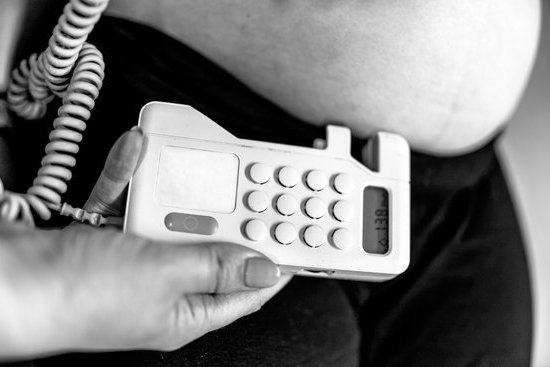Introduction
Pregnancy constipation occurs during pregnancy when hormones slow digestion and reduce the movement of food through the digestive system, leading to hard stools that are difficult to pass. As your uterus expands, it places increased pressure on your intestines, which can cause constipation. It may worsen as you get closer to delivery.
There are several ways to help with constipation in pregnancy:
1. Increase Your Fiber and Fluid Intake: Eating foods high in fiber or taking a fiber supplement helps keep stools soft and bulky. Also, be sure to drink plenty of fluids throughout the day. Water is always a good choice but other beverages like prune juice and milk of magnesia can also help relieve constipation.
2. Exercise Regularly: Aim for at least 30 minutes of physical activity each day; if that’s too much, break it into smaller chunks at different times during the day. Exercise helps keep your muscles strong and helps move food through your digestive system more quickly, reducing symptoms such as constipation.
3. Avoid Dehydrating Foods: Caffeine, alcohol and dairy products can all dehydrate stools, making them harder and more difficult to pass through your intestines. Limit these types of drinks as much as possible while pregnant to reduce constipation symptoms.
4. Take Magnesium Supplements: Adding an over-the-counter magnesium supplement can help relieve mild cases of pregnancy constipation without side effects for you or the baby due to its laxative properties. Consult with your medical professional before taking any kind of supplement or medication during pregnancy though!
Signs and Symptoms of Pregnancy Constipation
Constipation in pregnancy is a common complaint, affecting an estimated 40 to 60 percent of pregnant women. Some symptoms include infrequent bowel movements or difficulty passing stools due to hardening of the stool, bloating, and abdominal discomfort. In addition, some women may experience nausea compounded by constipation which can prevent them from eating comfortably and lead to dehydration. Thankfully, there are several ways to help alleviate constipation during pregnancy that can be both safe and effective.
One way to help alleviate constipation in pregnant women is by maintaining a diet high in dietary fiber. Increasing intake of fruits and vegetables can help add bulk to the stool and make it easier for the digestive system to move food through the body. Other recommendations include staying hydrated throughout the day; this will allow for increased intake of liquids that helps soften stools, as well as increase overall metabolic functioning leading to better digestion and bowel regularity. Finally, exercising on a regular basis also assists in movement through the intestines; light activity like walking or yoga can be especially beneficial and won’t strain an expectant mother’s body too much. If these strategies do not improve symptoms then contact your doctor so that they can provide additional advice or prescribe a treatment option if necessary.
Dietary Practices to Help Relieve Constipation
There are certain dietary practices that can help relieve constipation during pregnancy. Eating more high-fiber foods, such as leafy green vegetables, legumes, nuts and seeds, whole grains, and fruits like bananas and apples. Eating more water-rich foods like cucumbers and melons also can aid in digestion. Drinking plenty of fluids including water, juice, and herbal tea may also be helpful to keep your system running smoothly. Additionally, taking probiotic supplements or eating foods that contain natural sources of beneficial bacteria (like yogurt) may help to boost digestion and reduce constipation. Avoiding processed foods that are high in sugar or artificial sweeteners can also be beneficial as they can slow down digestion. Lastly, increasing your physical activity on a regular basis is important for overall digestive health and reducing digestive issues associated with pregnancy.
Exercise Plan for Targeting Constipation
A great way to help with constipation in pregnancy is to create and adhere to an exercise plan specifically targeting the issue. This can include doing a variety of light physical activities like walking, swimming, or yoga several times a week. Getting regular movement can help move the bowels along and encourage healthy digestion for pregnant women. Additionally, exercises that work on the deep muscles of the pelvic floor may be beneficial in relieving constipation during pregnancy. Squatting for 5-10 minutes at a time multiple times each day can also improve symptoms. Other forms of exercise that don’t involve too much strain on your abdomen are important to maintain since it will ensure that your pelvic muscles have enough blood flow and oxygenation help squeeze out your stools easily. Lastly, including more fiber in your diet like high-fiber foods such as fruits and vegetables, oatmeal, chia seeds, psyllium seed husk or barley can encourage regular bowel movements by adding bulk to the stool so it moves through your digestive system more smoothly.
Natural Ways to Manage Pregnancy Constipation
One of the most effective ways to help with constipation in pregnancy is to stay hydrated. Drinking plenty of water helps to prevent dehydration, which can contribute to constipation. Drinking eight 8-ounce glasses of water per day can provide a good amount of hydration throughout the day. Additionally, consuming more fibers and probiotics can also help manage constipation during pregnancy. Foods such as fruits, vegetables, and whole grains can provide both nutritional benefits and additional fiber that can be helpful in relieving constipation discomfort. Additionally, probiotics found in yogurt or other dietary supplements can help keep bowel movements regular by aiding digestion and promoting the growth of good bacteria within the gut. Exercise is also an important factor in preventing pregnancy-induced constipation because it keeps things moving inside the body and digestive tract. Moderate exercise such as walking, light yoga or stretching can increase circulation and aid digestion. Finally, being mindful throughout the day about going for bathroom breaks also helps reduce uncomfortable symptoms associated with constipation. If a pregnant woman does become constipated however, mild laxatives may be taken but should be taken under the supervision of a doctor or healthcare provider before taking any over-the-counter medications .
Prescription Medications for Constipation Relief
Certain prescription medications can help relieve constipation in pregnant women. These include laxatives, stool softeners, osmotic agents, and fiber supplements. Laxatives work by increasing the speed of digestion and stimulating bowel movement. Stool softeners help soften stool consistency and make it easier to pass. Osmotic agents act like a sponge, pulling fluid into the intestines and promoting a softer bowel movement. Fiber supplements can also be taken to add bulk to the stool, making it easier to pass. These are typically available over-the-counter but should only be taken under medical supervision as some types of medication may not be recommended for pregnancy. Additionally, for severe cases of constipation, your doctor may prescribe an enema – a solution which is injected into the rectum to stimulate peristalsis and prompt a bowel movement.
Coping Strategies for Dealing With Pregnancy Constipation
Drinking plenty of fluids: Pregnant women should drink eight to ten glasses of water per day to help ease constipation. Choose warm liquids such as clear soups, herbal teas, and plain water. Increase consumption of high-fiber foods: Foods full of fiber such as fruits, vegetables, and whole grains are beneficial for the digestion process. Fruits can be prepared in smoothies, salads or eaten as snacks throughout the day. Eating at regular times: Consuming meals and snacks on a regular basis helps keep the digestive system in working order. Avoiding processed food items or deep-fried fast food items that are often lacking fiber or have too much fat which can cause problems with digestion. Exercise regularly: Exercise is essential in keeping your body functioning well throughout pregnancy. Cardio exercises help increase blood flow to intestinal tracts by strengthening faeces movement; thus aiding in digestion as well as reducing constipation’s symptoms. Take probiotics: Probiotics are supplements that can be taken to increase good bacteria levels which act beneficial for digestion and reduce chances of constipation during pregnancy. Talk to your doctor about taking a probiotic supplement or try incorporating natural sources like yoghurt into your diet which contain beneficial bacteria that aid proper digestion.
Conclusion
Constipation during pregnancy is a common condition, but it can be uncomfortable and inconvenient. Many pregnant women struggle with this issue for the entire duration of the pregnancy due to changing hormones. While medications are sometimes prescribed, it is important to consider natural remedies first. Increasing dietary fiber intake, exercising regularly, drinking plenty of water and avoiding foods that may cause constipation can go a long way in helping alleviate symptoms throughout the term of pregnancy. Additionally, certain lifestyle alterations such as going to the bathroom when you feel the urge or avoiding becoming dehydrated by drinking plenty of fluids throughout the day can decrease constipation-related discomfort during pregnancy.
Overall, armed with knowledge on how to help with constipation during pregnancy can make a world of difference in alleviating the discomfort caused by its effects. With effort and understanding of proper treatment methods, constipation related issues can be properly managed so that pregnancy can remain a positive and healthy experience throughout its duration. Additionally, consulting a doctor may be wise if natural methods do not seem to work as desired as they are able to provide specific treatments tailored for an individual’s individual needs when needed. Taking these steps will ensure that constipation does not become a source of major concern during an otherwise joyful time period.

Welcome to my fertility blog. This is a space where I will be sharing my experiences as I navigate through the world of fertility treatments, as well as provide information and resources about fertility and pregnancy.





